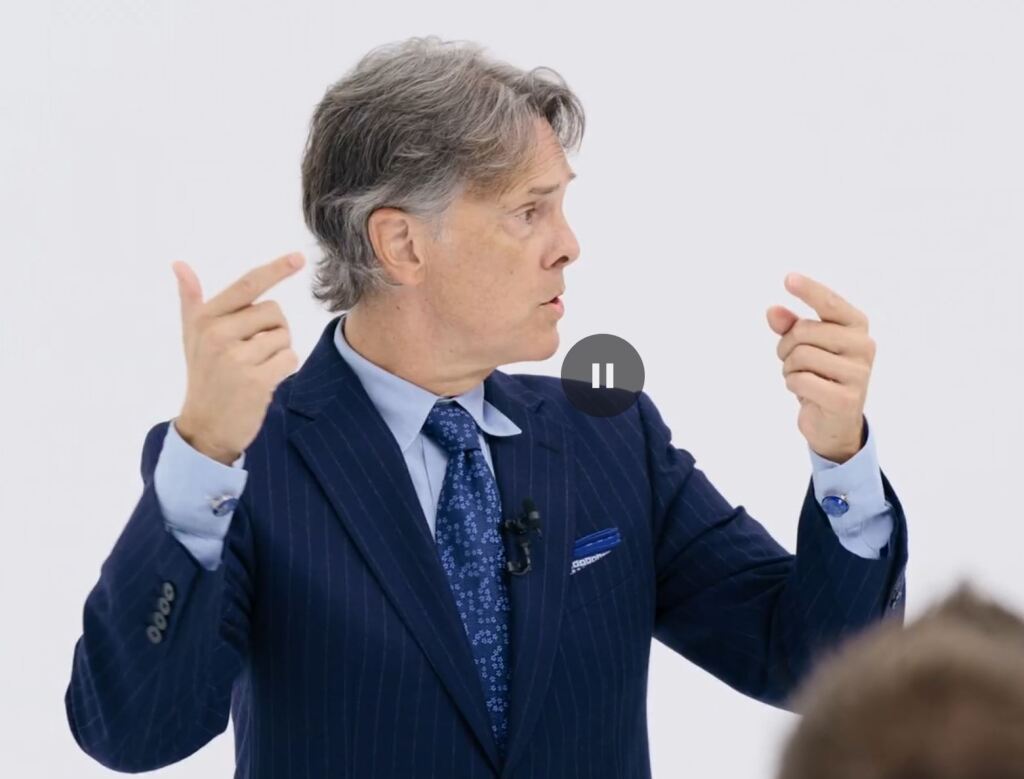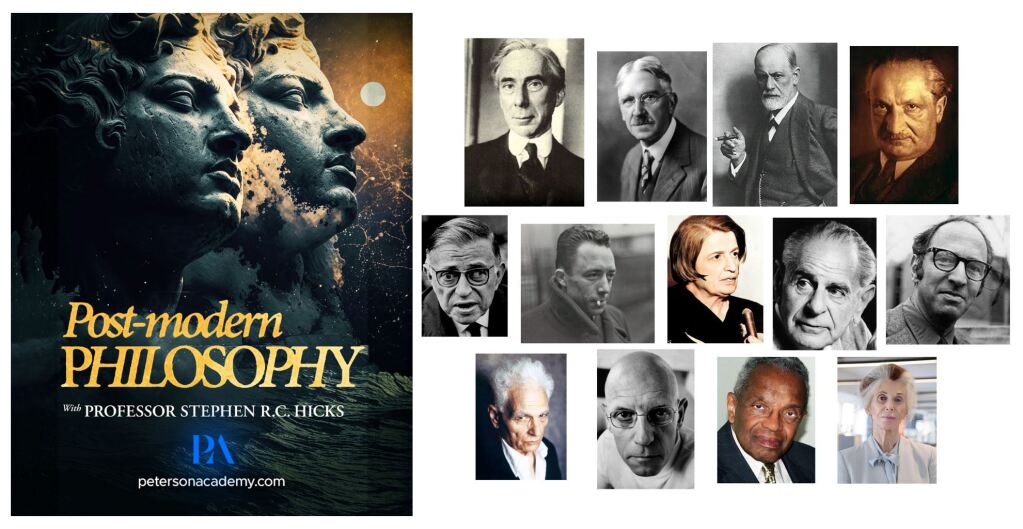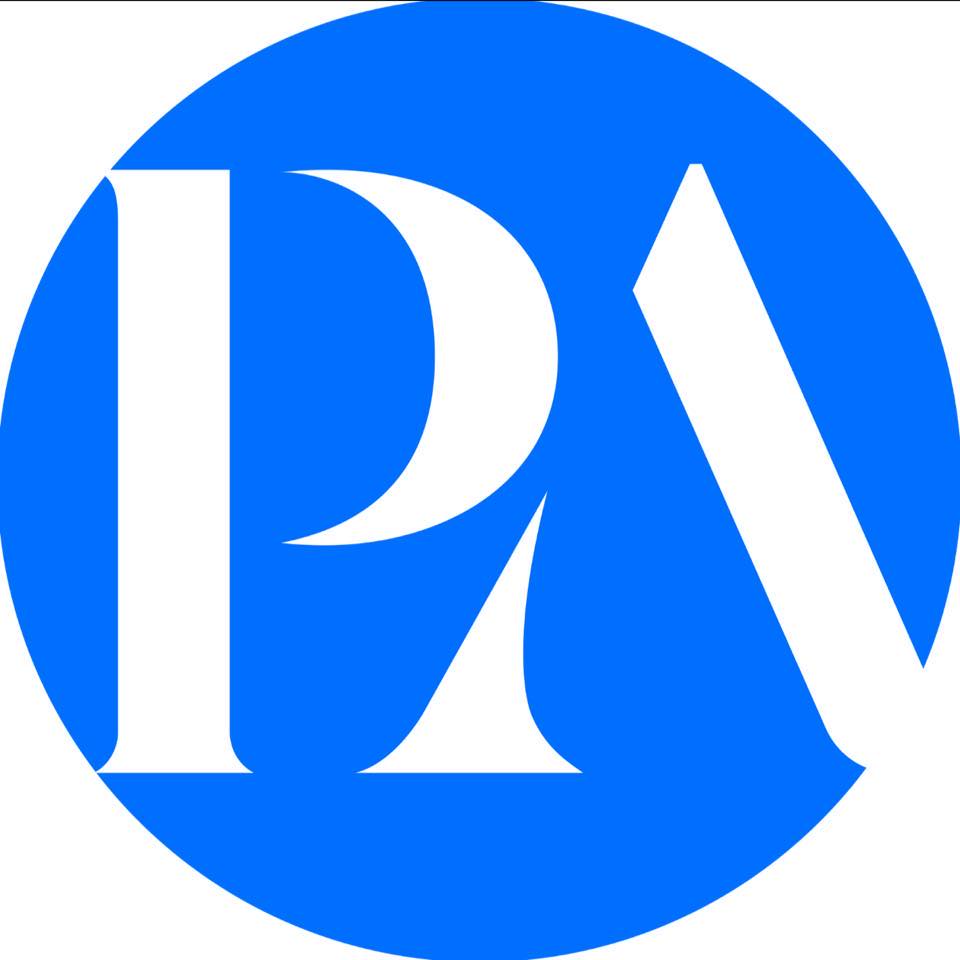
Lecture Five: Science and technology have accomplished wonders since the Enlightenment. But, as Karl Popper asks, how do we “distinguish between science and pseudo–science“? Thomas Kuhn suggests that scientists are less-than-objective and more “like the typical character of Orwell’s 1984.” Themes: Logical Positivism and Analytic philosophy’s aspirations and travails. Scientific method. Science and pseudo-science. Falsifiability. Paradigms. Indoctrination. Progress? Truth? Immanuel Kant. Moritz Schlick. A.J. Ayer. Paul Feyerabend. Texts: Popper: Conjectures and Refutations. Kuhn: The Structure of Scientific Revolutions.
About the Instructor
Stephen R. C. Hicks, Ph.D., has been Professor of Philosophy at Rockford University, Illinois; Visiting Professor of Business Ethics at Georgetown University, Washington, D.C.; Visiting Professor at the University of Kasimir the Great, Poland; Visiting Fellow at Harris Manchester College of Oxford University; and Visiting Professor at the Jagiellonian University, Poland.
In 2010, he won his university’s Excellence in Teaching Award.
Dr. Hicks is author of Explaining Postmodernism: Skepticism and Socialism from Rousseau to Foucault, Nietzsche and the Nazis, Entrepreneurial Living, Liberalism Pro and Con, and Eight Philosophies of Education. He has published in Business Ethics Quarterly, Review of Metaphysics, and The Wall Street Journal. His writings have been translated into twenty languages.

About the Course

In this eight lecture (nine-hour) course, Professor Hicks takes us on an exploration of the evolution of 20th-century philosophy, from the disappointed skepticism of Russell and the pragmatism of Dewey to the postmodern ideas of Foucault and Derrida. We examine how philosophers responded to major events and challenges of the era, such as World War I, World War II, and the Holocaust, and how their ideas shaped political ideologies and global conflicts.
The course also delves into the emergence of critical feminist and race theories, as well as the development of objective approaches to ethics and the debate surrounding the objectivity of science. Ultimately, we establish the profound influence of philosophy on history, demonstrating how philosophical ideas have the power to transform society and shape the course of human progress.

Course trailer and enrollment options at the Peterson Academy site. Professor Hicks’s other courses — Modern Philosophy, Philosophy of Politics: From the French Revolution to World War II, Philosophy of Politics: From the Cold War to After 9/11, and Modern Ethics — are coming soon to Peterson Academy.
Hi,
I have a trivial question : is it possible to attend only the course on Popper/Kuhn?
Thank you.
Regards
Guy-André Pelouze
I think right now PA has only full-access-to-everything options. Thanks for asking.